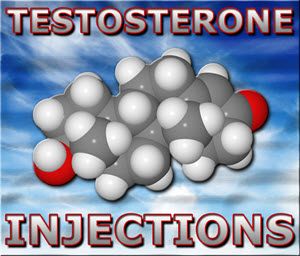Introduction
Testosterone propionate, a synthetic derivative of the naturally occurring male hormone testosterone, is commonly used for various medical and non-medical purposes among American men. While it is often employed to treat conditions such as hypogonadism, its use has also extended to performance enhancement and bodybuilding. However, the cardiovascular effects of testosterone propionate have raised concerns among healthcare professionals and users alike. This article delves into the potential impacts of testosterone propionate on the cardiovascular system of American men, providing a comprehensive overview of the current understanding and implications.
Cardiovascular Benefits of Testosterone Propionate
Testosterone propionate has been associated with several cardiovascular benefits. Studies have shown that it can improve endothelial function, which is crucial for maintaining healthy blood vessels. Enhanced endothelial function can lead to better blood flow and reduced risk of atherosclerosis. Additionally, testosterone propionate has been linked to increased levels of high-density lipoprotein (HDL) cholesterol, often referred to as "good" cholesterol, which can further contribute to cardiovascular health.
Moreover, testosterone propionate may have a positive effect on blood pressure regulation. Some research indicates that it can help in reducing systolic blood pressure, which is beneficial for cardiovascular health. These potential benefits suggest that, when used appropriately and under medical supervision, testosterone propionate could play a role in maintaining or improving cardiovascular function in American men.
Potential Cardiovascular Risks
Despite the potential benefits, testosterone propionate is not without risks. One of the primary concerns is its association with an increased risk of cardiovascular events, such as myocardial infarction and stroke. This risk is particularly pronounced in men with pre-existing cardiovascular conditions or those who misuse the substance.
Testosterone propionate can lead to an increase in low-density lipoprotein (LDL) cholesterol, known as "bad" cholesterol, which can contribute to the development of atherosclerosis. Furthermore, it may cause erythrocytosis, a condition characterized by an excessive production of red blood cells, which can increase blood viscosity and potentially lead to thrombotic events.
Clinical Considerations and Monitoring
Given the dual nature of testosterone propionate's effects on the cardiovascular system, it is crucial for American men considering its use to undergo thorough medical evaluation and monitoring. Baseline cardiovascular assessments, including lipid profiles and blood pressure measurements, should be conducted before initiating treatment. Regular follow-up appointments are essential to monitor any changes in cardiovascular health and to adjust treatment as necessary.
Healthcare providers should also educate patients about the signs and symptoms of cardiovascular complications, such as chest pain, shortness of breath, and leg swelling, and advise them to seek immediate medical attention if these occur. Additionally, lifestyle modifications, such as maintaining a healthy diet, engaging in regular physical activity, and avoiding smoking, should be emphasized to mitigate potential risks.
Conclusion
The use of testosterone propionate among American men presents a complex interplay of potential cardiovascular benefits and risks. While it may offer advantages such as improved endothelial function and better cholesterol profiles, it also carries the risk of increased cardiovascular events and adverse lipid changes. Therefore, it is imperative for men considering testosterone propionate to engage in informed discussions with their healthcare providers, undergo regular monitoring, and adopt a holistic approach to cardiovascular health. By doing so, they can maximize the potential benefits while minimizing the risks associated with this potent hormone.
Contact Us Today For A Free Consultation

- Testosterone Propionate: Enhancing Male Health and Managing Hormonal Imbalances in American Men [Last Updated On: March 1st, 2025] [Originally Added On: March 1st, 2025]
- Testosterone Propionate's Impact on Sleep Quality in American Males: A Therapeutic Overview [Last Updated On: March 18th, 2025] [Originally Added On: March 18th, 2025]
- Testosterone Propionate's Role in Male Pattern Baldness: Insights for American Men [Last Updated On: March 19th, 2025] [Originally Added On: March 19th, 2025]
- Long-term Testosterone Propionate Use: Health Risks for American Men [Last Updated On: March 19th, 2025] [Originally Added On: March 19th, 2025]
- Ethical Considerations of Testosterone Propionate Use in American Male Athletes [Last Updated On: March 19th, 2025] [Originally Added On: March 19th, 2025]
- Testosterone Propionate: A Potential Solution for Chronic Pain in American Males [Last Updated On: March 19th, 2025] [Originally Added On: March 19th, 2025]
- Testosterone Propionate: A Comprehensive Guide for Weight Management in American Men [Last Updated On: March 20th, 2025] [Originally Added On: March 20th, 2025]
- Testosterone Propionate's Impact on Cognitive Function in American Males: Benefits and Risks [Last Updated On: March 20th, 2025] [Originally Added On: March 20th, 2025]
- Testosterone Propionate: Enhancing Energy Levels in American Men [Last Updated On: March 21st, 2025] [Originally Added On: March 21st, 2025]
- Testosterone Propionate: Benefits, Risks, and Legal Considerations for American Men [Last Updated On: March 21st, 2025] [Originally Added On: March 21st, 2025]
- Testosterone Propionate: Enhancing Male Fertility in American Men [Last Updated On: March 22nd, 2025] [Originally Added On: March 22nd, 2025]
- Testosterone Propionate's Impact on Liver Health: Risks and Mitigation Strategies [Last Updated On: March 22nd, 2025] [Originally Added On: March 22nd, 2025]
- Testosterone Propionate: A Promising Treatment for Anemia in American Men [Last Updated On: March 22nd, 2025] [Originally Added On: March 22nd, 2025]
- Testosterone Propionate: A Promising Treatment for Depression in American Males [Last Updated On: March 22nd, 2025] [Originally Added On: March 22nd, 2025]
- Testosterone Propionate: Enhancing Male Aesthetics and Muscle Growth in America [Last Updated On: March 22nd, 2025] [Originally Added On: March 22nd, 2025]
- Testosterone Propionate: Enhancing Recovery and Performance in American Male Athletes [Last Updated On: March 22nd, 2025] [Originally Added On: March 22nd, 2025]
- Testosterone Propionate: A Promising Therapy for Osteoporosis in American Men [Last Updated On: March 22nd, 2025] [Originally Added On: March 22nd, 2025]
- Testosterone Propionate's Impact on Blood Pressure in American Men: A Comprehensive Analysis [Last Updated On: March 22nd, 2025] [Originally Added On: March 22nd, 2025]
- Testosterone Propionate: Enhancing Sexual Health in American Men Under Medical Supervision [Last Updated On: March 23rd, 2025] [Originally Added On: March 23rd, 2025]
- Testosterone Propionate's Impact on Immune Function in American Males: A Comprehensive Review [Last Updated On: March 23rd, 2025] [Originally Added On: March 23rd, 2025]
- Testosterone Propionate: Exploring Its Role in Stress Management for American Men [Last Updated On: March 23rd, 2025] [Originally Added On: March 23rd, 2025]
- Testosterone Propionate's Impact on Immune Function in American Men: A Comprehensive Review [Last Updated On: March 24th, 2025] [Originally Added On: March 24th, 2025]
- Testosterone Propionate's Impact on Diabetes Risk in American Males: A Comprehensive Review [Last Updated On: March 24th, 2025] [Originally Added On: March 24th, 2025]
- Testosterone Propionate: Effects on Mood and Considerations for American Men [Last Updated On: March 24th, 2025] [Originally Added On: March 24th, 2025]
- Testosterone Propionate's Impact on Cardiovascular Health in American Men: Risks and Benefits [Last Updated On: March 24th, 2025] [Originally Added On: March 24th, 2025]
- Testosterone Propionate: Enhancing Vitality and Performance in American Men [Last Updated On: March 24th, 2025] [Originally Added On: March 24th, 2025]
- Testosterone Propionate's Impact on Cholesterol Levels in American Men: Cardiovascular Risks [Last Updated On: March 24th, 2025] [Originally Added On: March 24th, 2025]
- Testosterone Propionate: Enhancing Strength and Performance in American Men [Last Updated On: March 24th, 2025] [Originally Added On: March 24th, 2025]
- Testosterone Propionate in HRT: Benefits, Risks, and Legal Aspects for American Males [Last Updated On: March 25th, 2025] [Originally Added On: March 25th, 2025]
- Testosterone Propionate's Impact on Mental Health in American Men: Benefits and Risks [Last Updated On: March 25th, 2025] [Originally Added On: March 25th, 2025]
- Testosterone Propionate: A Promising Aid in Managing Obesity in American Males [Last Updated On: March 25th, 2025] [Originally Added On: March 25th, 2025]
- Testosterone Propionate: Enhancing Joint Health in American Men [Last Updated On: March 25th, 2025] [Originally Added On: March 25th, 2025]
- Testosterone Propionate: Enhancing Fitness and Health in American Men [Last Updated On: March 26th, 2025] [Originally Added On: March 26th, 2025]
- Testosterone Propionate: Benefits, Administration, and Risks for American Men's Health [Last Updated On: March 26th, 2025] [Originally Added On: March 26th, 2025]
- Testosterone Propionate: Benefits, Dosage, Side Effects for American Male Bodybuilders [Last Updated On: March 26th, 2025] [Originally Added On: March 26th, 2025]
- Testosterone Propionate's Impact on Mental Health in American Men: Benefits and Risks [Last Updated On: March 26th, 2025] [Originally Added On: March 26th, 2025]
- Testosterone Propionate: Enhancing Performance and Risks for American Men [Last Updated On: March 26th, 2025] [Originally Added On: March 26th, 2025]
- Testosterone Propionate: Enhancing Fertility in American Males with Low Sperm Count [Last Updated On: March 26th, 2025] [Originally Added On: March 26th, 2025]
- Testosterone Propionate's Impact on Bone Health in American Men: Benefits and Risks [Last Updated On: March 27th, 2025] [Originally Added On: March 27th, 2025]
- Testosterone Propionate: Benefits, Risks, and Legal Issues for American Weightlifters [Last Updated On: March 27th, 2025] [Originally Added On: March 27th, 2025]
- Testosterone Propionate in Anti-Aging: Benefits, Risks, and Optimal Use in Men [Last Updated On: March 27th, 2025] [Originally Added On: March 27th, 2025]
- Testosterone Propionate: Enhancing Endurance in American Men - Benefits and Risks [Last Updated On: March 27th, 2025] [Originally Added On: March 27th, 2025]
- Testosterone Propionate: Managing Hormonal Imbalances in American Men [Last Updated On: March 27th, 2025] [Originally Added On: March 27th, 2025]
- Testosterone Propionate: Enhancing Muscle Recovery in American Men - Benefits and Risks [Last Updated On: March 27th, 2025] [Originally Added On: March 27th, 2025]
- Testosterone Propionate: A Promising Treatment for Chronic Fatigue in American Males [Last Updated On: March 28th, 2025] [Originally Added On: March 28th, 2025]
- Testosterone Propionate: Enhancing Sexual Health in American Men - Benefits and Risks [Last Updated On: March 28th, 2025] [Originally Added On: March 28th, 2025]
- Testosterone Propionate: A Promising Treatment for Muscle Wasting in American Males [Last Updated On: March 28th, 2025] [Originally Added On: March 28th, 2025]
- Testosterone Propionate: Boosting Energy in American Males with Low Testosterone [Last Updated On: March 28th, 2025] [Originally Added On: March 28th, 2025]
- Testosterone Propionate: Enhancing Libido and Sexual Performance in American Men [Last Updated On: March 28th, 2025] [Originally Added On: March 28th, 2025]
- Testosterone Propionate: Enhancing Muscle Growth and Strength in American Men [Last Updated On: March 29th, 2025] [Originally Added On: March 29th, 2025]
- Testosterone Propionate: Benefits and Risks for Managing Deficiency in American Men [Last Updated On: March 30th, 2025] [Originally Added On: March 30th, 2025]
- Testosterone Propionate's Impact on Mood and Emotional Health in American Men [Last Updated On: April 2nd, 2025] [Originally Added On: April 2nd, 2025]
- Testosterone Propionate: Enhancing Sexual Health and Performance in American Men [Last Updated On: April 3rd, 2025] [Originally Added On: April 3rd, 2025]
- Testosterone Propionate: Benefits, Risks, and Ethics in Athletic Performance Enhancement [Last Updated On: April 5th, 2025] [Originally Added On: April 5th, 2025]
- Testosterone Propionate Boosts Bone Density in American Men: Benefits and Risks [Last Updated On: April 5th, 2025] [Originally Added On: April 5th, 2025]
- Testosterone Propionate: Enhancing Sexual Desire and Function in American Men [Last Updated On: April 7th, 2025] [Originally Added On: April 7th, 2025]
- Testosterone Propionate: Managing Deficiency in American Men - Benefits and Considerations [Last Updated On: April 9th, 2025] [Originally Added On: April 9th, 2025]
- Testosterone Propionate: A Promising Treatment for Fatigue in American Males [Last Updated On: April 9th, 2025] [Originally Added On: April 9th, 2025]
- Testosterone Propionate: Medical Uses, Fitness Benefits, and Regulatory Considerations [Last Updated On: April 9th, 2025] [Originally Added On: April 9th, 2025]
- Testosterone Propionate: Enhancing Muscle Strength and Performance in American Men [Last Updated On: April 9th, 2025] [Originally Added On: April 9th, 2025]
- Testosterone Propionate in HRT: Benefits, Risks, and Considerations for American Men [Last Updated On: April 9th, 2025] [Originally Added On: April 9th, 2025]
- Testosterone Propionate: Treating Muscle Loss in American Males [Last Updated On: April 10th, 2025] [Originally Added On: April 10th, 2025]
- Testosterone Propionate: Enhancing Sports Performance and Associated Risks for American Men [Last Updated On: April 10th, 2025] [Originally Added On: April 10th, 2025]
- Testosterone Propionate's Impact on American Men's Psychological Health: Benefits and Risks [Last Updated On: April 12th, 2025] [Originally Added On: April 12th, 2025]
- Testosterone Propionate: Enhancing Strength Training in American Men - Benefits and Risks [Last Updated On: April 12th, 2025] [Originally Added On: April 12th, 2025]
- Testosterone Propionate: Cardiovascular Risks and Benefits in American Men [Last Updated On: April 13th, 2025] [Originally Added On: April 13th, 2025]
- Testosterone Propionate: Impacts on American Men's Reproductive Health and Beyond [Last Updated On: April 13th, 2025] [Originally Added On: April 13th, 2025]
- Testosterone Propionate: A Promising Treatment for Sarcopenia in Aging American Males [Last Updated On: April 14th, 2025] [Originally Added On: April 14th, 2025]
- Testosterone Propionate: Cardiovascular Benefits and Risks for American Men [Last Updated On: April 16th, 2025] [Originally Added On: April 16th, 2025]
- Testosterone Propionate: Enhancing Athletic Performance and Risks for American Men [Last Updated On: April 17th, 2025] [Originally Added On: April 17th, 2025]
- Testosterone Propionate: Enhancing Mental Health in American Men [Last Updated On: April 18th, 2025] [Originally Added On: April 18th, 2025]
- Testosterone Propionate: Combating Lethargy in American Males [Last Updated On: April 18th, 2025] [Originally Added On: April 18th, 2025]
- Testosterone Propionate: Uses, Benefits, and Risks in Men's Health Programs [Last Updated On: April 18th, 2025] [Originally Added On: April 18th, 2025]
- Testosterone Propionate: Enhancing Sexual Vitality in American Men - Benefits and Risks [Last Updated On: April 18th, 2025] [Originally Added On: April 18th, 2025]
- Testosterone Propionate's Impact on Bone Density and Joint Health in American Men [Last Updated On: April 19th, 2025] [Originally Added On: April 19th, 2025]
- Testosterone Propionate: Benefits, Risks, and Regulation for American Men's Health [Last Updated On: April 19th, 2025] [Originally Added On: April 19th, 2025]
- Testosterone Propionate: Enhancing Emotional Well-being in American Men [Last Updated On: April 20th, 2025] [Originally Added On: April 20th, 2025]
Word Count: 538





















